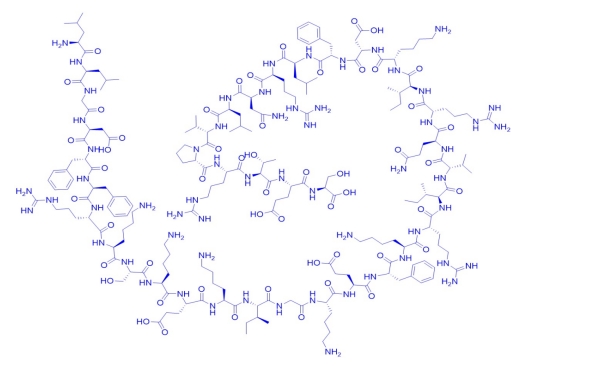What are antimicrobial peptides?
Antimicrobial peptides, also known as antimicrobial peptides, are important components of human natural immunity and widely present in natural organisms. They are small molecular peptides with biological activity induced by organisms. Two main types of antimicrobial peptides are produced in the human body ![]() efensin and Cathelicidin. Defensin covers a variety of antimicrobial peptides, but Cathelicidin has only one antimicrobial peptide product, LL-37.
efensin and Cathelicidin. Defensin covers a variety of antimicrobial peptides, but Cathelicidin has only one antimicrobial peptide product, LL-37.
What is LL-37?
LL-37, the only Cathelicidin antimicrobial peptide present in human body, is composed of 37 amino acids at the N-terminal of Cathelicidin protein, and the initial amino acid is L-L, hence the name LL-37.
LL-37 is a major protein in neutrophils and is widely present in neutrophils, bone marrow, and cervical and vaginal squamous epithelium. The LL-37 precursor is composed of a signal peptide, a conserved region of cathelin, and 37 amino acid residues. When cells are activated, biologically active LL-37 is produced by cleavage by serine protease 3 and other proteolytic enzymes and has antibacterial, antifungal, and antiviral functions, as well as chemoattractant and immune stimulation/modulation functions.
Post time: Sep-30-2024

